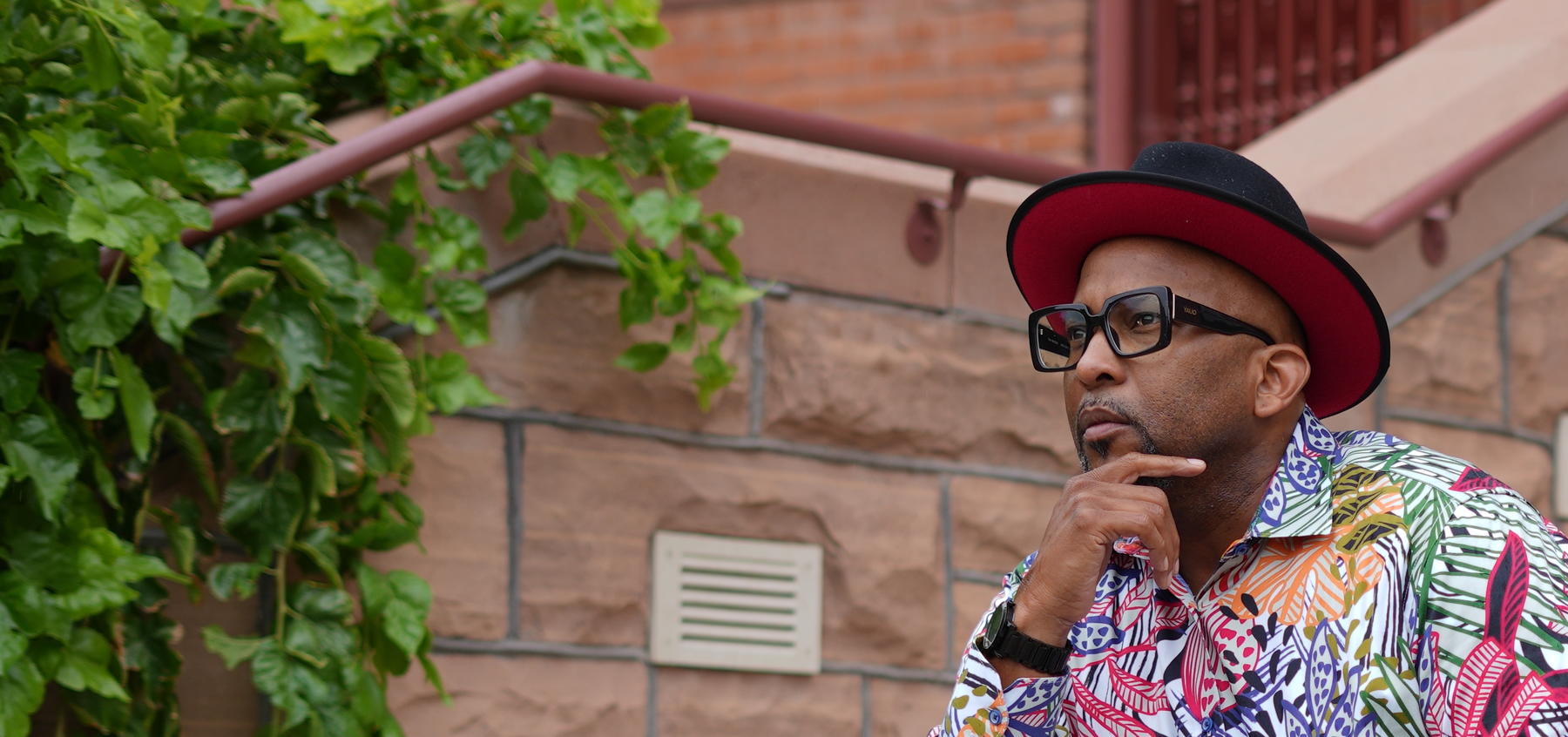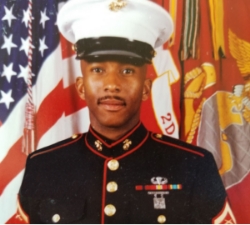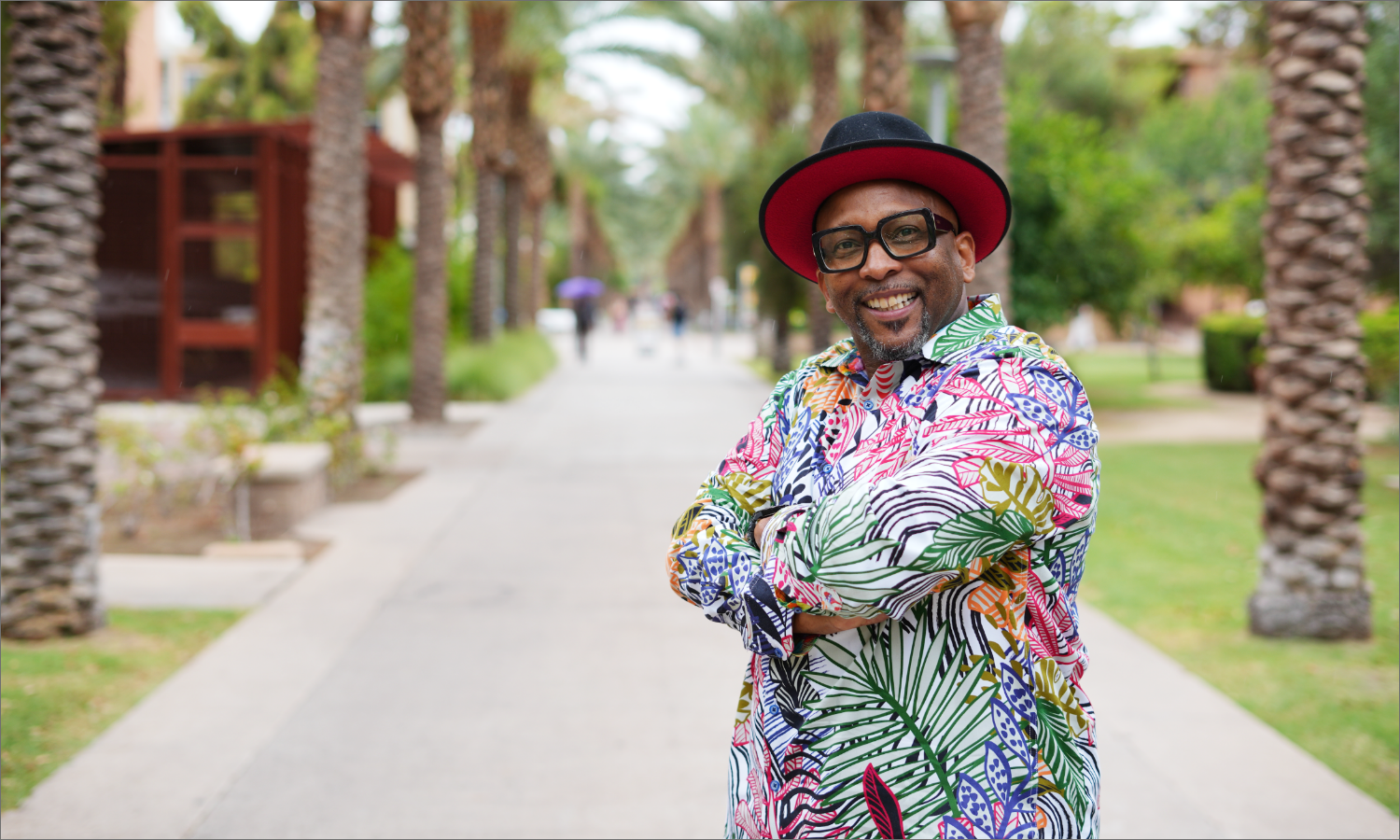
Coming Full Circle: A conversation with ASU professor, U.S. Marine Corps veteran Kermit Brown
I first met Professor Kermit Brown a few years ago when he and CISA history faculty member Pamela Stewart invited me to speak about my military experience for the ASU course VTS 301 Veterans, Society and Service. These many years later, I was delighted to be able to interview Professor Brown about his military service, educational journey and his support for veteran students. Professor Brown is an assistant teaching professor in the School of Applied Professional Studies in ASU’s College of Integrative Sciences and Arts.

Brown was recruited by the U.S. Marine Corps in 1990 as an 18-year-old during his senior year of high school. In Brown’s school, a Marine recruiter was allowed to walk the campus to recruit students.
“I was not the greatest student. I was known to miss a few classes here and there,” admits Brown. “The recruiter would walk the campus in his dress blues, and he wore his cap so low you could barely see his eyes. He’d catch me in the hallways and call me out by my last name: ‘Brown, when you coming to join my Marine Corps?’” Brown recalled. “The recruiter stalked me pretty much the entire fall semester.”
The recruiter finally convinced him, and Brown signed up.
“But to show you how naive I was, I thought that when you enlisted to serve your country, they gave you a cot, three meals and the opportunity to travel the world,” said Brown. “When I heard from the recruiter that I was going to get a paycheck, too, that made me all the more eager to join up.”
In December 1990, Brown raised his right hand and swore to defend the constitution of the United States. He spent the next four years with the Marines all over the world— from Japan to Cuba — serving his country.

duty Marine Corps.
Photo courtesy of Kermit Brown
When he returned to the Valley after his stint in the Marines, Brown decided to go back to school; but this time he had the discipline and motivation to take it seriously. He enrolled in Glendale Community College not really knowing what he wanted to do next. His counselor recommended he take a public speaking class. Little did Brown know that 20 years later he would be teaching that same course.
“At the time I never dreamed that one day I’d be a professor teaching at the university level,” Brown said. “But I fell in love with learning, and it was like someone turned the light back on.”
As he pursued communication as his course of study, he realized he was becoming a communicator. After studying at Glendale Community College he enrolled at ASU, where Brown completed his bachelor’s degree, master’s degree and a doctorate in educational leadership.
Today he teaches courses supporting CISA’s degrees in organizational leadership, project management and the certificate in veterans, society and service.
“The joy for me teaching my active duty and veteran students comes with being able to identify with each other, being able to understand each other, and communicate with each other and to lean on one another. One of my favorite things is being able to connect veteran students with other veterans and to connect them with opportunities and connect them with support. I feel like I have an obligation and responsibility to say, let me help guide you. Let me help show you the way. Let me help show you what resources are available to you.”
For Brown, his experiences and his education have all come full circle: “I know that feeling of coming fresh off of active duty and trying to figure out your next steps. I want to be there to help and support the veteran students at ASU as they go through that transition.”
What excites Brown most about the future of education are the technology expansions.
“AI is both terrifying and exciting. If you are paying attention, you can see what AI can do in regard to learning and teaching,” he said. “I’m excited to see what the future holds for the use of such technologies.”
He also sees ASU as a beacon for social justice.
“I am very proud of ASU for its advancements in these areas,” said Brown, who supports ASU’s Center for the Study of Race and Democracy. The center facilitates powerful and informed dialogue and transformative scholarship about issues related to race and democracy.

What does he enjoy doing when he’s not working?
“For me, Sunday afternoons have always been a treasured time in my life,” Brown told me. “On a typical Sunday afternoon you’ll find me with R&B playing in the background, cooking a couple of steaks on the grill and enjoying life,” Brown noted. “I also enjoy traveling and would love to go somewhere tropical and to Africa.”
— Wanda Wright, Director
ASU Office for Veteran and Military Academic Engagement